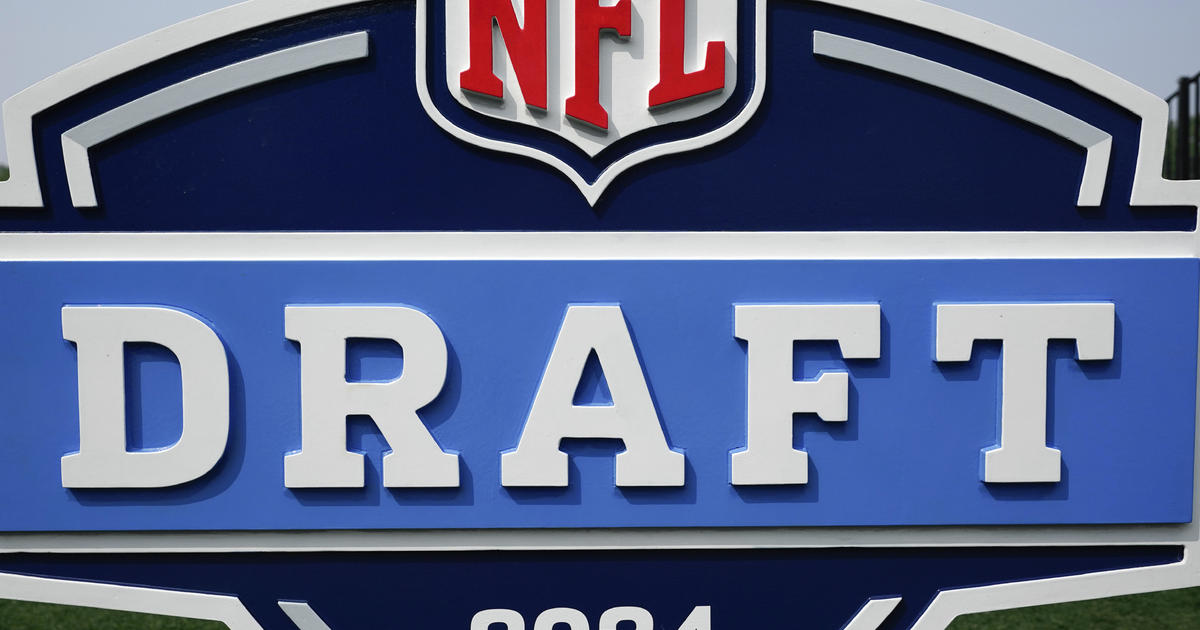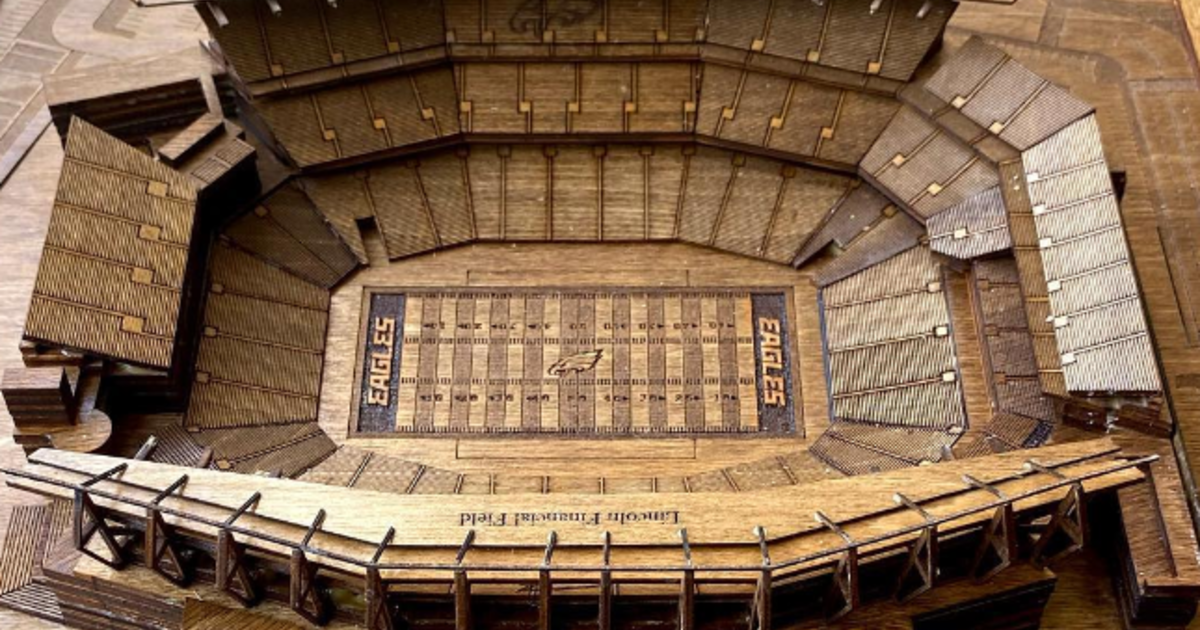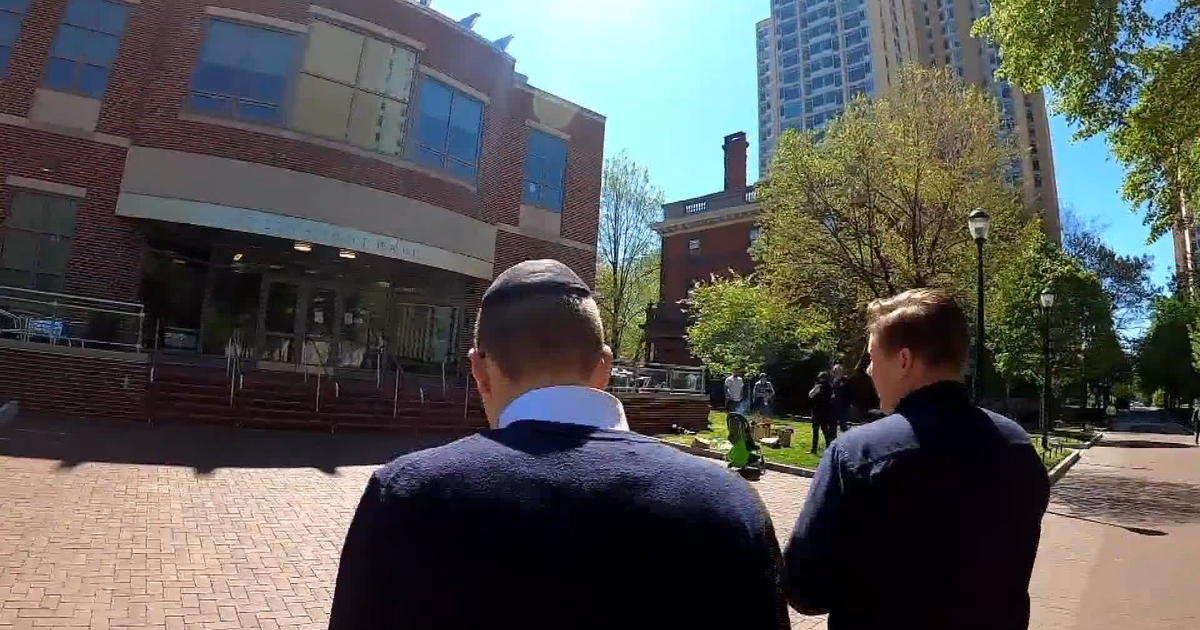Living Legend Bruno Sammartino Reflects On Amazing Career
By Joe Santoliquito
Pittsburgh, PA (CBS) — Bruno Sammartino's roots are deeply entrenched in Italy and in Pittsburgh, but he belongs to the world—especially to any kid growing up in the 1960s or 70s that had to rush in front of the TV on Saturday mornings and tune into pro wrestling.
At 77, Sammartino still cuts an iconic, imposing figure. He's not 270 pounds, and he can't bench press 565 pounds anymore; the days of throwing around Superstar Billy Graham and George "The Animal" Steele are over, but his chiseled physique and legend definitely carry considerable sway, packing autograph shows and eliciting standing ovations.
It's taken some time and some repairs, but Sammartino's accomplishments were finally honored by his enshrinement in the WWE Hall of Fame this year at Madison Square Garden, which he sold out a record 187 times when Sammartino headlined. For years, there had been a running feud between Sammartino and WWE CEO Vince McMahon. But wrestler "Triple H," or Paul Levesque, McMahon's son-in-law, intervened and smoothed over the conflict.
Finally, the man who helped make pro wrestling into a billion-dollar industry is included in its hall of fame. Without Sammartino, the WWE Hall of Fame would be like the Baseball Hall of Fame without Babe Ruth.
Sammartino's ears are gnarled from years of drop kicks and headbutts, but his mind is very sharp and he remains very lucid.
"I had my issues with wrestling and the drug use, the profanity, nudity and vulgarity, all of that stuff bothered me tremendously, because I spent a quarter of a century in the business," said Sammartino, who will turn 78 on October 6, and holds an unbreakable record as the WWE's longest-continuous champion, holding the world title for seven years, eight months, and one day.
"I was outspoken about all of the things going on and I didn't want to go into their hall of fame because it would have been hypocritical of me to do that. It didn't feel right to me, so I kept refusing for years. But Paul Levesque, or Triple H, who happens to be a pretty darned good guy, contacted me close to a year ago.
"He pointed out to me that changes were being made, and they were serious about drug testing. They hired Dr. Joseph Maroon, who I knew as an honorable man and who operated on my back, and he told me they were serious about this. I began watching wrestling and everything Paul told me was true. It was fun again, the kind of thing someone could take their family."
Sammartino's true story is far more dramatic than any fictional storyline. He and his family came over from Abruzzi, Italy, surviving the Nazi occupation during World War II. His mother, Emilia, used to steal food from the Germans and was once captured and shot in the shoulder. Sammartino's young eyes witnessed executions by Nazi SS stormtroopers.
He overcame rheumatic fever, and was such a frail child when he arrived in the United States, he was often the scornful target of bullies for his scrawny size and Italian accent. That's what created the foundation. That's what addicted him to weight training. Sammartino began working out. He piled slabs of muscle onto what was a bony, 85-pound frame.
By the time he was a teenager and into his early 20s, Sammartino was competing in strongman and powerlifting contests, one time bench pressing a world-record 565 pounds with an extended two-second pause on his chest. He was powerful, agile and dabbled into wrestling with the University of Pittsburgh wrestling team when he was discovered.
By 1959, he was a quickly rising young star. He beat Buddy Rogers, the original "Nature Boy," on May 17, 1963, in a mere 48 seconds for what was then Vince McMahon Sr.'s World Wide Wrestling Federation championship, which is now Vince Jr.'s WWE, and didn't relinquish the crown until January 18, 1971, when he lost the championship at Madison Square Garden to Ivan Koloff.
"It may sound surprising, but I don't miss wrestling at all, I miss the fans, because they treated me so super great that I can't tell how much appreciation I have for them," Sammartino said. "That's why I always did my best, even late in my career. The reason why I wanted out was because I felt I was cheating the fans. I felt if they couldn't see the best of me, I didn't want them to see me. I owed that much to the fans for all the many years they supported me when they packed the arenas.
"As the years went by, and the injuries piled on, and you can't do what you used to do, I started feeling a little guilty about staying in wrestling. I was talked out of retirement a few times by different promoters and some of the other wrestlers. Fans went out of their way to buy tickets, for parking, and I wanted them to really enjoy their experience and come away and say, 'Wow, I had a great time.' My biggest thing was always the fans. They were the ones that made me who I was. If I was a so-called star, they made me that star."
The strange thing is, then and now, Sammartino never viewed himself as a superstar. His parents got to watch and enjoy his success. His three sons and four grandchildren are getting to enjoy the latter years of his life, topped by the WWE Hall of Fame ceremony.
To Sammartino, stardom's trappings were for someone else, not him.
"To me, wrestling was my job and I did the best I could," Sammartino said. "I wanted to be the best that I could possibly be at it. When they say today things like living legend, maybe I come from the old country, but I don't even know what that means. I honestly do not. What meant the world to me was being in that ring and people chanting my name, because it meant I was pleasing the fans. That was the biggest thing for me."
His endearing old-school humility is what's prolonged Sammartino's status as a living legend. It's a quality that you rarely find in contemporary pro sports. Today's athletes do a little and feel they've achieved a lot. And though pro wrestling is "a work," to use the vernacular of the business, it is demanding, with the constant travel and athleticism required to fly through the air, and the pounding a pro wrestler's body takes.
Sammartino once broke his neck. His body has suffered decades of bumps, bruises, sprains, broken bones and strains.
"I had humble beginnings, surviving through World War II, and I was among the lucky ones, with all those executed that did not escape, and I got sick and I wasn't expected to live," Sammartino recalled. "I came over here as a bag of bones, but when you experience the things I experienced in my life, only a fool would change the way you came by that success. You look at success and thank God and the fans for the success. It's why I always feel indebted to the fans.
"The pro athletes that make millions today should be so grateful for everything they have; they should remember where they came from. So when I see some athletes today put themselves above the fans, I have no respect for any of them. Down the road, they'll pay a price for that kind of arrogance."
WWE has plans for Sammartino. He admitted he was pleasantly surprised by the reception he received at Madison Square Garden. He felt most of the fans that watched him growing up don't follow wrestling anymore and he feared he was somehow forgotten.
He's in the twilight of an amazing life. From surviving the Nazis and rheumatic fever, bullying, to finding his niche as a pro wrestler and traveling the world, to receiving standing ovations at 77 in Madison Square Garden, Sammartino has had a very eventful life.
Sammartino's won. Both in the ring and out. He's never lost who he is.
"These young people who never saw me wrestle were chanting my name and I have to tell you, that sent chills up my spine," said Sammartino, reflecting on the Hall of Fame induction. "I have to thank the WWE and Paul for that. The [WWE] has a video game featuring me down the road, and they will ask me to make appearances here and there. That's in their plans. I think it certainly would be fun to return to the cities I headlined one time. I would love to come back to Philadelphia. I say this sincerely, Philadelphia was one of my great towns. I love Philadelphia—and I used to go to Philadelphia every two weeks. I miss Philadelphia, and Philadelphia was always very flattering to me. I hope I can come back to Philadelphia.
"But when I look back on everything, it's almost like a dream. It was 50 years ago when I won the world championship, and I think to myself, 'My God, where did those 50 years go?' I look back and think about all of the different things that happened in my life, surviving the hell of the war, and how rough it was here for me in America when I was a child. Then getting into this profession. Sometimes, I think and wonder, a lot of things have happened in my life. I traveled so much, you can't take the time to appreciate things. I can look back at it all and I feel pretty good. I have had a pretty amazing life."
Joseph Santoliquito is a contributing sports blogger for CBS Philly.



